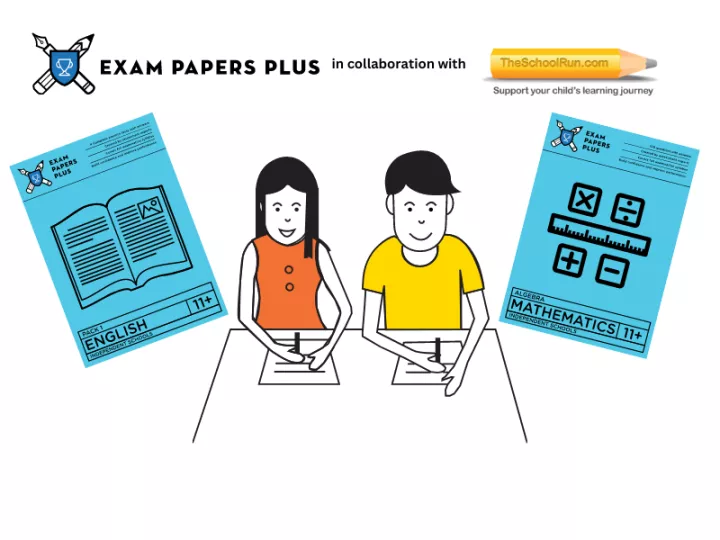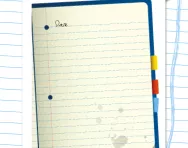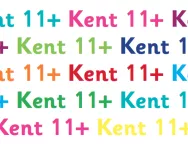Important update from TheSchoolRun
For the past 13 years, TheSchoolRun has been run by a small team of mums working from home, dedicated to providing quality educational resources to primary school parents. Unfortunately, rising supplier costs and falling revenue have made it impossible for us to continue operating, and we’ve had to make the difficult decision to close. The good news: We’ve arranged for another educational provider to take over many of our resources. These will be hosted on a new portal, where the content will be updated and expanded to support your child’s learning.
What this means for subscribers:
- Your subscription is still active, and for now, you can keep using the website as normal — just log in with your usual details to access all our articles and resources*.
- In a few months, all resources will move to the new portal. You’ll continue to have access there until your subscription ends. We’ll send you full details nearer the time.
- As a thank you for your support, we’ll also be sending you 16 primary school eBooks (worth £108.84) to download and keep.
A few changes to be aware of:
- The Learning Journey weekly email has ended, but your child’s plan will still be updated on your dashboard each Monday. Just log in to see the recommended worksheets.
- The 11+ weekly emails have now ended. We sent you all the remaining emails in the series at the end of March — please check your inbox (and spam folder) if you haven’t seen them. You can also follow the full programme here: 11+ Learning Journey.
If you have any questions, please contact us at [email protected]. Thank you for being part of our journey it’s been a privilege to support your family’s learning.
*If you need to reset your password, it will still work as usual. Please check your spam folder if the reset email doesn’t appear in your inbox.
Top tips for the 11+ English writing task

If your child is preparing for the 11+, they may well have to take a written English paper as part of the test. This varies from area to area. Some regions don’t set a writing task at all; others do, but use it only as a decider in the case of borderline students, while in other areas, it’s a vital part of the exam. We asked 11+ tutor Anita Clemens, who has been helping children prepare for the creative writing task for 20 years, for her words of wisdom.
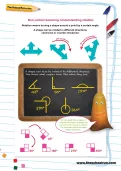
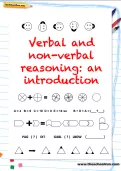
Prepare Your Child For The 11+ Exam
- Essential 11+ English and maths skills
- Verbal and non-verbal reasoning questions
- Reading comprehension worksheets & CLOZE tests
Know what you’re writing about
The type of task your child will have to do for their creative writing test will depend on which region you’re in. ‘Typically, they will need to produce a leaflet, letter, newspaper report, review, story, script or diary entry,’ says Anita.
In some areas, children are given a choice of which subject or type of writing to tackle, but in others, there is one set task, which children won’t know about until they open their exam paper. ‘It’s essential that children produce a piece of writing that fits both the title and the topic,’ Anita says. ‘For instance, if they’re asked to write a newspaper report but write a story, they will be heavily penalised.’
It’s a good idea for your child to practise writing in a range of styles, especially as they may not have covered them all in depth at school. ‘Play scripts, for example, are usually covered in Year 4, and unless they practise in the interim, children may have forgotten the conventions by the time they take the 11+,’ explains Anita.
Read widely
Being an extensive reader is one of the secrets to success for the English writing task. ‘Reading across a wide range of genres helps children to develop their vocabulary, knowledge of writing conventions and sentence structure,’ says Anita. ‘Children who don’t read for pleasure are at a real disadvantage in their English skills by 11+ age.’
Use the planning time wisely
Children in some areas are given an additional 10 minutes’ planning time before they start their written task, while in others, they’ll need to allocate their own time to planning from the overall time allowance. In either case, it’s essential that your child does take the time to put together a proper plan, with written notes and a clear structure. ‘Children generally need to be taught to plan, so that they come up with a solid overall plan rather than a vague idea that leads to them wandering off the point,’ Anita explains.
Exam Papers Plus & TheSchoolRun.com
If you're looking for practice papers for your child's 11+, our partners at Exam Papers Plus have papers, courses and mock exams for each area.
And their Pretest Plus offers online tests and video courses to help your child succeed at CAT, ISEB PRETEST, CEM SELECT and UKISET examinations.
Be original – but not too original!
Eleven plus examiners will want to see that your child has good ideas, so encourage them to think of an original twist on the subject matter they’re given. ‘But while their interpretation should be original, it shouldn’t be so off the wall that they don’t get anything done because they’ve made their idea overly complicated and are thinking too hard about it,’ Anita advises.
Use sophisticated language and sentence structures
One of the key things that 11+ examiners are looking for is an excellent standard of written English. ‘They will want your child’s spelling, punctuation and grammar to be correct, or very nearly correct,’ says Anita. ‘Your child needs to demonstrate a wide vocabulary, a variety of punctuation and use of complex sentence structures, not just simple ones.’
Show off your best handwriting
First impressions count, and children who produce neat work and create a good overall impression at first glance tend to get better marks in the test. ‘Handwriting must be legible; ideally it should be joined, but if your child struggles with this, it’s better for them to use unjoined script that is clearer to read,’ Anita says.
Write the right amount
There’s no set amount for how much children should write in the English task, but Anita advises aiming for a side of A4. ‘For children with larger writing or bigger spaces between words, this may be more like a side and a half, but children shouldn’t fall into the trap of thinking that the more they write, the better: it’s more important to produce quality than quantity,’ Anita says.
Check and correct
It’s essential that your child leaves time to read through their work and correct any mistakes. ‘This is a vital part of the writing task,’ says Anita. ‘Also, remind your child that if they find an error, it is always better to correct it: some children are reluctant to alter their work because they don’t like to make it look messy by changing things, but a neatly corrected error is always preferable to leaving a mistake in place.’
NB: TheSchoolRun receives a small commission from sales made through Exam Paper Plus.
